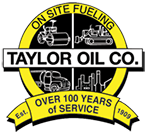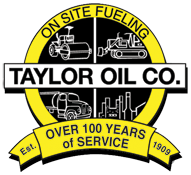In the realm of contemporary fleet management, the term “sustainability” looms large. With environmental concerns taking center stage and stringent regulatory standards on the rise, fleet operators face a pressing need to adopt strategies that not only enhance efficiency but also minimize their carbon footprint. At the heart of this endeavor lies Diesel Exhaust Fluid (DEF), an often overlooked yet indispensable component in the quest for cleaner, greener fleet operations.
DEF, a solution comprised of purified water and automotive-grade urea, serves as a catalyst in the selective catalytic reduction (SCR) process employed by modern diesel engines. By injecting DEF into the exhaust stream, SCR technology facilitates the conversion of harmful nitrogen oxides (NOx) emissions into harmless nitrogen and water vapor, significantly reducing the environmental impact of diesel-powered vehicles.
So, why is DEF indispensable for today’s fleets? Let’s delve deeper into its importance:
1. Environmental Responsibility:
In an era marked by heightened awareness of climate change and air quality issues, the reduction of emissions ranks among the foremost priorities for fleet managers. DEF plays a pivotal role in this regard, enabling fleets to slash NOx emissions by up to 90%, thereby curbing their ecological footprint and contributing to cleaner air for communities.
2. Regulatory Compliance:
Compliance with stringent emissions regulations is not just a legal obligation but a business imperative for fleet operators. DEF empowers fleets to meet and exceed regulatory standards such as those set forth by the Environmental Protection Agency (EPA) and the European Union’s Euro Standards, ensuring that vehicles remain compliant with evolving emission norms.
3. Engine Performance Optimization:
Contrary to common misconceptions, DEF doesn’t merely serve as an emissions-reducing agent; it also promotes optimal engine performance. By facilitating the efficient combustion of diesel fuel, DEF helps maintain engine integrity, prolonging component lifespan and minimizing maintenance costs for fleet operators.
4. Fuel Efficiency Enhancement:
Efficiency is the cornerstone of fleet management, and DEF contributes to this ethos by optimizing fuel consumption. By enabling SCR-equipped engines to operate at peak efficiency levels, DEF ensures that fleets derive maximum mileage from every gallon of diesel consumed, translating into tangible cost savings over the long term.
5. Future-Proofing Fleet Operations:
As regulatory scrutiny intensifies and environmental consciousness continues to grow, DEF stands as a forward-looking investment for fleet managers. Embracing DEF-enabled technologies today not only positions fleets for compliance with existing regulations but also future-proofs them against stricter mandates on emissions and sustainability.
In closing, Diesel Exhaust Fluid (DEF) emerges as a linchpin in the modern fleet management landscape, embodying the ethos of environmental stewardship, regulatory compliance, and operational excellence. By integrating DEF into their operational framework, fleet operators can navigate the complexities of a rapidly evolving industry landscape while simultaneously advancing the cause of sustainability for generations to come. As the adage goes, when it comes to DEF, the benefits are clear: cleaner engines, clearer skies, and a brighter future for all. If you need assistance or have questions about fleet management and DEF contact Taylor Oil Company.


